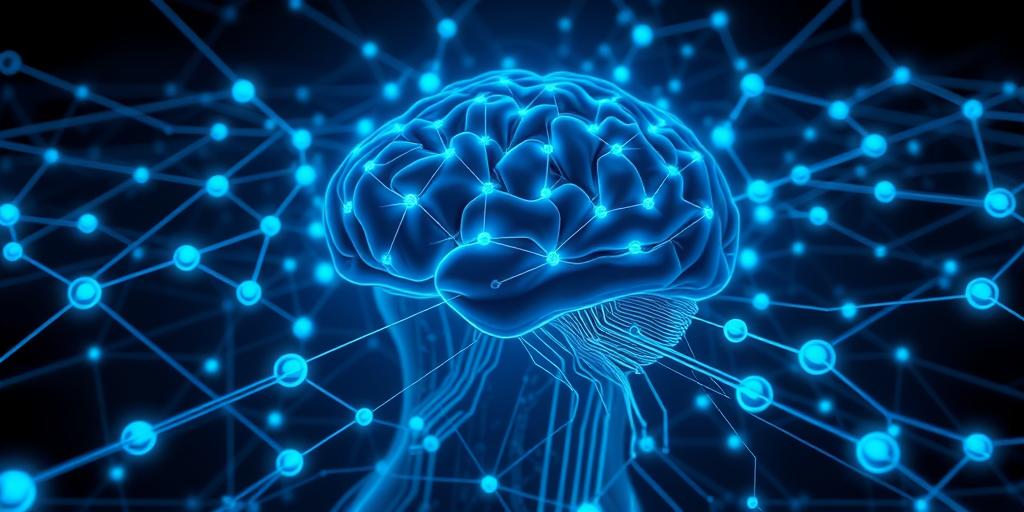In today’s digital age, cybersecurity threats are more sophisticated and frequent than ever before. From ransomware attacks crippling businesses to data breaches exposing sensitive personal information, the stakes are higher than ever. But what if I told you there’s a powerful ally in this ever-evolving battle? Enter artificial intelligence (AI), a game-changer that’s revolutionizing how we protect ourselves and our data in the digital world. AI is no longer a futuristic concept; it’s a present-day reality reshaping the landscape of modern cybersecurity solutions and offering unprecedented levels of protection.
AI’s Enhanced Threat Detection Capabilities
Traditional cybersecurity systems often rely on signature-based detection, meaning they only identify known threats. This leaves a significant vulnerability to zero-day exploits and novel malware. AI, however, changes the game by employing machine learning algorithms to analyze network traffic, system logs, and user behavior, identifying anomalies that might indicate malicious activity. These algorithms can learn and adapt, constantly evolving their ability to detect even the most subtle signs of an attack. This proactive approach is far more effective than reactive methods, minimizing damage and reducing response times.
AI-Powered Intrusion Detection Systems
AI-powered intrusion detection systems (IDS) go beyond basic signature matching. They leverage machine learning to establish a baseline of normal behavior for networks and systems. Any deviation from this baseline, no matter how subtle, triggers an alert. This allows for the detection of sophisticated, multi-stage attacks that traditional IDS might miss, providing a critical early warning system.
Anomaly Detection and Predictive Analysis
AI excels at identifying anomalies that human analysts might overlook. By analyzing vast amounts of data, AI can detect unusual patterns and behavior that might indicate a compromise. Furthermore, predictive analysis, a powerful AI capability, allows security teams to anticipate potential threats based on historical data and current trends. This proactive approach helps organizations strengthen their defenses before an attack even occurs.
AI-Driven Automation and Response
Responding effectively to cyber threats requires speed and precision. Manual response methods are often slow and can easily be overwhelmed by the sheer volume of alerts. AI can automate many aspects of the response process, drastically improving efficiency and reducing response times. AI-driven security information and event management (SIEM) systems can analyze security alerts, prioritize critical threats, and even initiate automated responses to contain threats quickly.
Automating Incident Response
AI can automate various incident response tasks, including threat isolation, system patching, and malware removal. This automation significantly reduces the workload on security teams, freeing up personnel to focus on more strategic tasks. It also speeds up the response process, significantly minimizing the potential impact of an attack.
Improved Security Orchestration, Automation, and Response (SOAR)
AI enhances SOAR capabilities by enabling intelligent automation. AI can prioritize incidents based on severity and risk, optimizing resource allocation and ensuring that the most critical threats are addressed first. It also improves collaboration between different security tools and systems, creating a more cohesive and effective security posture.
Enhancing Cybersecurity with AI: A Multifaceted Approach
AI’s role in cybersecurity extends beyond threat detection and response. It is also transforming other areas, like vulnerability management and risk assessment. AI can help automate the discovery and prioritization of vulnerabilities, allowing organizations to focus on patching the most critical issues. Risk assessment models can be enhanced with AI, providing more accurate and insightful assessments of potential threats and weaknesses.
AI-Driven Vulnerability Management
Manually assessing and remediating vulnerabilities is time-consuming and resource-intensive. AI can help automate this process by analyzing code for vulnerabilities, prioritizing patches based on risk, and even suggesting remediation strategies. This proactive approach reduces the attack surface and strengthens overall security.
AI-Powered Security Awareness Training
Humans are often the weakest link in any security system. Phishing attacks and social engineering are common methods used by cybercriminals. AI-powered security awareness training simulates realistic scenarios, teaching employees to identify and avoid such threats. This training makes employees a more robust part of the security defense.
The Future of AI in Cybersecurity
AI is not just enhancing existing cybersecurity practices; it’s fundamentally reshaping the field. As AI technology continues to evolve, we can expect even more sophisticated and effective cybersecurity solutions. The integration of AI across all aspects of security, from threat intelligence to incident response, will be essential for organizations to stay ahead of the ever-evolving landscape of cyber threats. We can expect to see advancements in AI’s ability to predict and prevent attacks, further reducing the impact of cybercrime on businesses and individuals.
Embrace AI as your shield against the relentless attacks in the ever-evolving digital landscape. Don’t wait to be a victim—take control of your security today!




